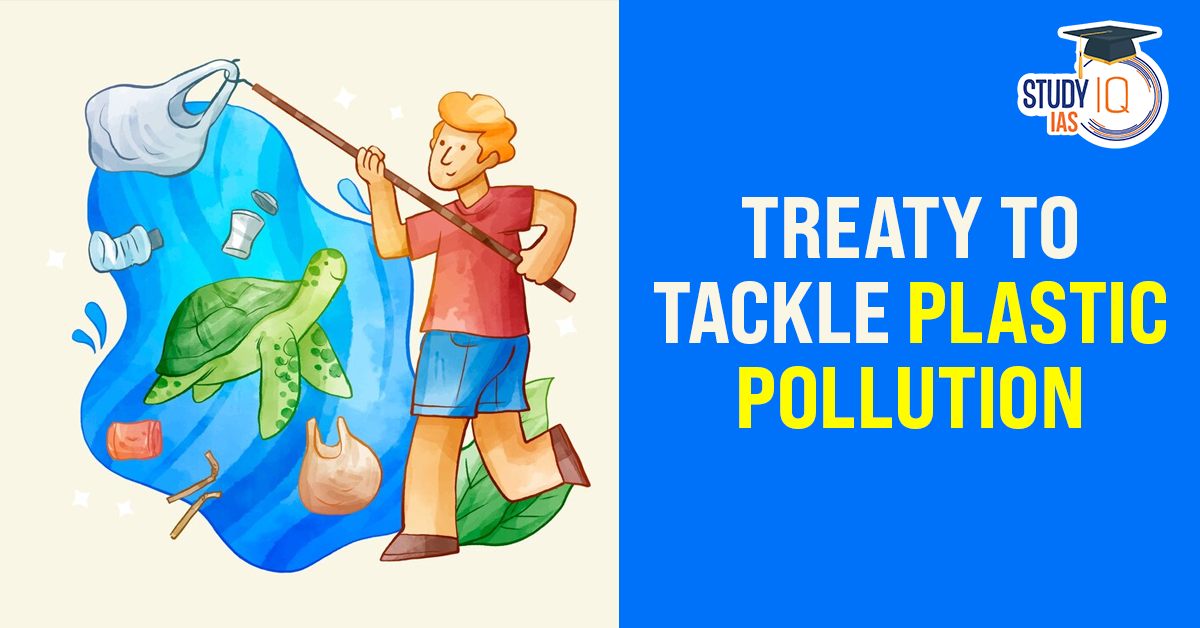Table of Contents
This diplomatic summit represents the fifth and concluding negotiation round since 2022, when the United Nations Environmental Assembly initially committed to developing this pivotal environmental agreement, with the goal of finalizing the treaty by the end of 2024.
Importance of a Global Plastic Treaty
Escalating Plastic Production
- Production Growth: Global plastic production has surged dramatically, doubling from 234 million tonnes (mt) in 2000 to 460 mt in 2019. Projections suggest it could reach 700 mt by 2040, with nearly half of the production occurring in Asia.
- Environmental Crisis: Plastic takes between 20 to 500 years to decompose, and less than 10% of plastic waste is recycled. Approximately 400 mt of plastic waste is generated annually, expected to increase by 62% between 2024 and 2050.
Health and Environmental Impact
- Microplastics: Much of the plastic waste enters the environment, breaking down into microplastics that pose significant risks to ecosystems and human health.
- Health Risks: Exposure to chemicals in plastics is linked to various health issues, including endocrine disruption, cancer, diabetes, reproductive disorders, and neurodevelopmental impairments.
- Climate Change Contribution: In 2020, plastic production accounted for 3.6% of global greenhouse gas emissions. If current trends continue, emissions from plastic production could rise by 20% by 2050.
India’s Role
- India contributes significantly to global plastic pollution, accounting for about 20% with emissions totaling 9.3 mt, far surpassing other countries like Nigeria (3.5 mt) and Indonesia (3.4 mt).
Negotiation Challenges
Key issues on the negotiating table include the life cycle of plastics, production caps, and waste management strategies. However, countries are divided on several points:
- Production Caps: Oil and gas-rich nations like Saudi Arabia, Russia, and India oppose strict caps, favoring downstream measures like improved waste management.
- Ambitious Proposals: Rwanda, Peru, and the EU advocate for significant cuts, with Rwanda proposing a 40% reduction in plastic pollution by 2040 (baseline: 2025).
- Financial Disputes: There is no consensus on funding mechanisms. UNEP’s draft calls for mobilizing private and public investments.
India’s Stance
- Production Restrictions: Opposes polymer production caps, stating this exceeds UNEA’s mandate.
- Technology Transfer and Funding: Advocates for including provisions for financial and technical assistance in the treaty.
- Chemical Regulation: Suggests decisions on harmful chemicals should be evidence-based and regulated domestically.
- Single-Use Plastics Ban: Implemented a ban on 19 single-use plastic categories in 2022 but calls for pragmatism in phasing out additional items.
- Waste Management: Urges a mechanism to assess infrastructure and financial requirements for safe waste management.


 National Maritime Day 2025, Theme, Histo...
National Maritime Day 2025, Theme, Histo...
 International Day for Mine Awareness and...
International Day for Mine Awareness and...
 List of Military Exercises of India 2024...
List of Military Exercises of India 2024...





















